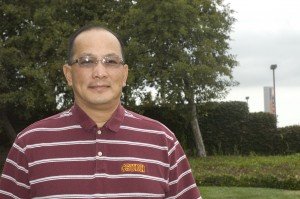A grant from the United States Agency for International Development (USAID) has been awarded to the California State University, Dominguez Hills College of Extended & International Education (CEE) to train nurses and other health professionals from the Dominican Republic, El Salvador, Guatemala, Haiti, Honduras, Mexico and Nicaragua. The scholars are awardees of the Scholarships for Education and Economic Development (SEED) program administered by the Center for Intercultural Education and Development at Georgetown University.
Two SEED cohorts have been funded for one year to live and study at CSU Dominguez Hills for six months each. The first group will be at the university from January to June 2011. Their curriculum will be presented primarily in Spanish by university faculty and local practitioners. They will also be provided with an orientation to American culture and practical English provided by the university’s American Language and Culture Program (ALCP). CEE will present an educational program addressing transmissible disease vector control in partnership with the Greater Los Angeles County Vector Control District and UCLA- Harbor Women’s Health Clinic. A second cohort will study at CSU Dominguez Hills from July to December.

Michael Casner, CEE international training coordinator and proposal co-author, says that SEED is “a very compelling program that will create community leaders who have skills and knowledge to directly improve quality of life in their local communities. They are really agents of change, [to] come here and absorb this information and go back home and really make an impact,” he says.
Casner says that the SEED program will also greatly benefit the CSU Dominguez Hills community by doing volunteer work while through the Center for Service Learning, Internships, and Civic Engagement. He also says that the university will have access to an international cadre of scholars who can share the experiences of their homeland with students and faculty of similar heritage.
“I’ve received commitments from various faculty members who will have the scholars come to their classes and give presentations about their culture and their work,” he says. “They will be definitely contributing to the campus’s intellectual program.
“Many of our students may have been born and raised here, but their parents come from these countries and it’s a great opportunity for them to meet these individuals,” Casner says. “Given the fact that we’re the most diverse campus in the country with a very large Hispanic student body–more than 40 percent–it will be a wonderful experience for our students to have a chance to interact and engage with these scholars.”
For more information on the College of Extended and International Education, click here.